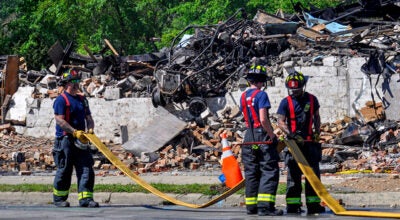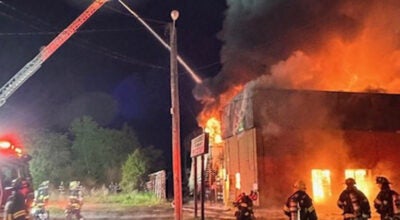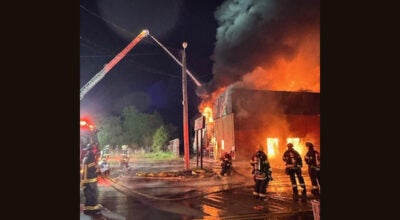Schools pursue better AP performance
Published 10:59 pm Monday, February 25, 2013
Suffolk’s School Board chairman is concerned that seniors inflating GPAs by taking Advanced Placement courses then ditching exams is driving down overall district performance.
According to College Board data, about two in 10 Suffolk graduates took at least one AP course last year. About one in 10 of those scored a three or higher on at least one exam.
But across Virginia, more than four in 10 graduates took at least one AP class, and more than two in 10 of those scored a three or higher.
“A lot of kids take AP classes because it inflates their GPA,” Chairman Michael Debranksi observed. “They are not required to take the AP exam.”
He said he will ask administrators at the School Board’s next meeting for the numbers of students taking AP courses but not exams.
Even if they were required to take them, Debranski said, students could score zero on exams and still get the weighted grade. “It’s a situation that I’m not exactly pleased with,” he said.
Debranski also wants to know how many Suffolk students are sitting college-level exams via dual enrollment and the International Baccalaureate program instead of AP courses, which could explain the district’s poorer AP participation rate.
“Dual credit is probably one of the reasons we may not have as many students in AP courses,” he said.
The district screens students for AP classes, Debranski said, “but we don’t kick anybody out who shows they want to do it. … (But) if they don’t do well, we try to counsel them into more appropriate courses.”
Suffolk Public Schools has outlined several factors to address after 2012 AP data was reported last week.
“Naturally, we see a need for improvement,” the district’s supervisor of advanced instruction, Carol Kennedy-Dickens, wrote in an email, adding that discussions with teachers and AP instructional planning/feedback revealed “several factors which we must address.”
They include the need for preparation starting in middle school, more student-centered instruction, more higher-level questioning, more essay-based assessments and better education for the community on the expectations and benefits of higher-level learning.
The district has also applied to a state program, Virginia Advanced Study Strategies, which would provide assistance including more teacher training, student tutoring, vertical alignment of instruction and funding to support student fees and instructional materials, she wrote.
There was no significance difference in the number of Suffolk graduates who took AP courses last year compared to 2011, according to Kennedy-Dickens, but families being expected to pay AP exam fees for the first time resulted in marginally fewer students sitting them.
“Students are permitted to enroll in the classes, but have the option of sitting for the examination since they are picking up the financial burden,” she wrote.
The board’s 2013 AP Report to the Nation showed the percentage of Virginia graduates who scored three or higher on at least one 2012 AP exam, 27.2 percent, was up from 25.6 percent in 2011.
Conversely, the performance of Suffolk graduates declined 10 percent, according to Kennedy-Dickens, who says Suffolk students are performing better in English and history.
Kennedy-Dickens believes it is important to track IB results for a more accurate picture of graduates’ college-readiness. “Since our school district now has an IB program available to all Suffolk students, those statistics are equally important to track,” she wrote.
“Each year, as the number of IB graduates in the district increases, it will become important to look at both statistics acknowledging that the IB student may not be taking AP exams.
“The IB graduates, for example, last year registered a pass rate of 100 percent with a grade of 4 (1-7 scale) or above on several exams.”
Fewer students have registered for AP courses this year because of financial concerns, according to Kennedy-Dickens.






